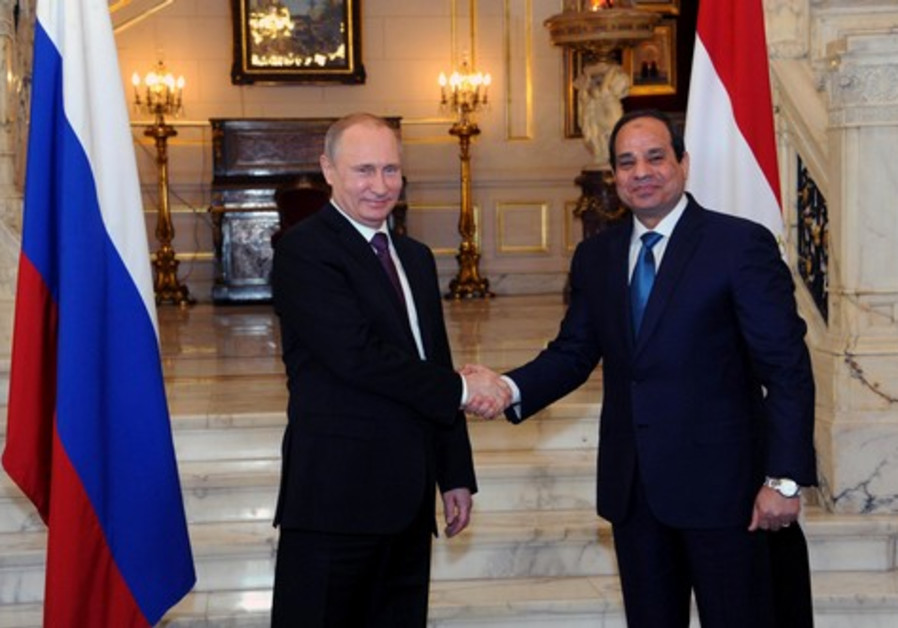The Uncompliant Client-State
"We are pleased to note stable positive dynamics in the military-technical sphere,"
"We believe that it's necessary to fight this evil [Islamic State and its affiliates] together using all accessible means,"
Russian Defense Minister Sergei Shoigu
 |
| Military secure worshippers outside al-Rawdah mosque during the first Friday prayer after last week's attack in Bir Al-Abed, Egypt. (Mohamed Abd El Ghany/Reuters) |
Egypt, perennially short in their finances, has depended on U.S. largess for many years. It has benefited to an estimated $70-billion in military support and other economic aid since the 1980s, relying on $1.3-billion annually from U.S. Treasury coffers. Of course American interests in maintaining its relations with Egypt went steadily downhill under the Obama administration which felt that democracy had been suborned when the Muslim Brotherhood's Mohammad Morsi was removed from the elected presidency by his former top general, now President Abdel Fattah el-Sisi.
 |
| U.S. President Donald Trump and First Lady Melania Trump join King Salman bin Abdulaziz Al Saud of Saudi Arabia, and the President of Egypt, Abdel Fattah al-Sisi, in the inaugural opening of the Global Center for Combating Extremist Ideology, May 21, 2017. (Official White House Photo by Shealah Craighead) |
And however strange it seems that Egypt will garner no other benefit from Russia other than reciprocation in airbase use potential, and risk offending the United States which provides rather munificent financial support to the most populous of Arab countries in the Middle East, only goes to prove that politics in the Middle East is stranger than anywhere else on Earth. Cash-strapped and oil-deficient Egypt needs all the help it can get. Its once-thriving tourism industry has fallen on parlous times, not least because of the ongoing turmoil in Sinai.
Russia has had its own taste of the Sinai's Islamic State affiliate's deadly efficiency, the downing of a Russian passenger jet two years ago carrying hundreds of Russian tourists back to Russia from their holiday paradise in the Sinai, where all aboard perished. The hundreds of Egyptian Sufi Muslims who died in the deadly attack on a northern Sinai mosque two weeks ago did so through the jihadist professionalism of the Sinai Province, proud to be part of Islamic State terrorism central. Hence the self-satisfied conclusion spoken by Russia's Sergei Shoigu.
When the Trump administration harrumphed about withholding $281 million in aid in response to Egypt's questionable links to North Korea, the move was named a "misjudgement" by Egypt's foreign minister, Sameh Shoukry. What does a self-respecting nation do when its beneficent sponsor draws back from its commitment in chastising an noncompliant beneficiary? Why the insulted beneficiary looks to counter-insult and in the process give pause for introspective thought. Besides which, players in the Middle East are notoriously fickle.
 |
| Russia's President Vladimir Putin (L) shakes hands with Egypt's President Abdel Fattah al-Sisi in Cairo. (photo credit: REUTERS) |
Labels: Egypt, Russia, United States

<< Home